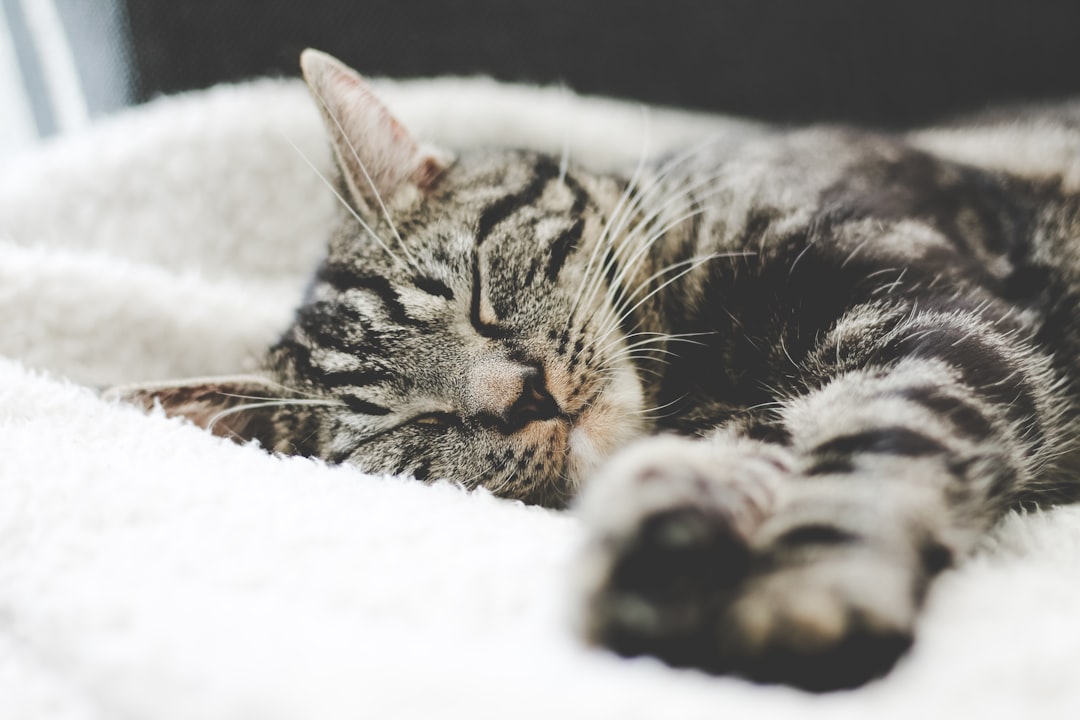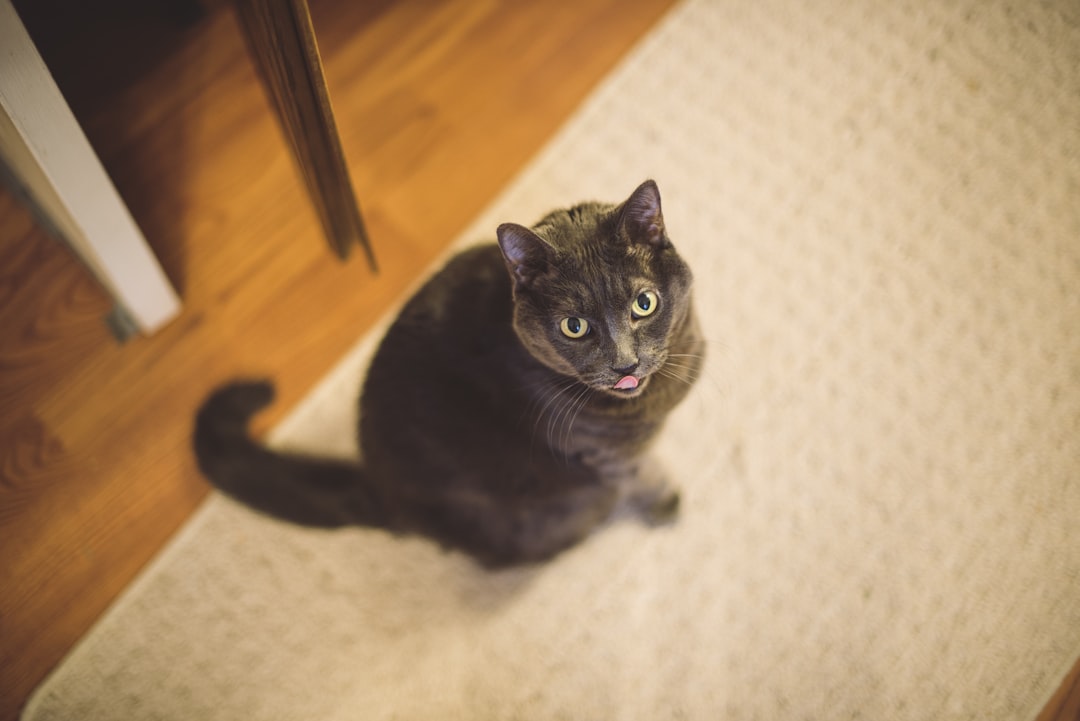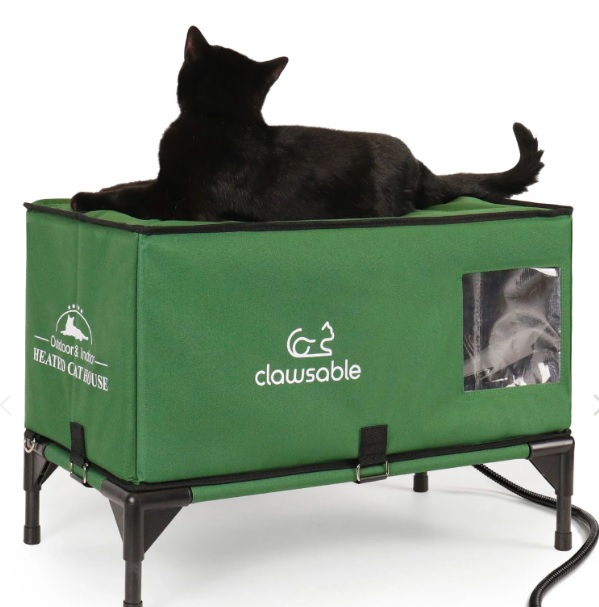Considering a serval cat pet can be an exciting yet challenging endeavor. These exotic animals, native to Africa, boast striking appearances and unique personalities. However, owning a serval cat requires in-depth knowledge and preparation due to their specific needs. From understanding their natural behavior to ensuring proper legal compliance, each aspect plays a crucial role in their care. In this guide, we will delve into essential factors to consider, helping you make an informed decision about incorporating a serval cat into your home.
Understanding Serval Cats: An Overview
A serval cat pet captivates many animal lovers with its unique appearance and energetic personality. Originating from Africa, servals are medium-sized wild cats known for their long legs, large ears, and striking coat patterns. Here are some key characteristics:
- Size: Servals typically weigh between 20 to 40 pounds and can stand up to 24 inches tall at the shoulder.
- Lifespan: In captivity, servals can live 12-20 years, given proper care and environment.
- Diet: These cats are carnivorous, primarily feeding on rodents, birds, and insects in the wild.
Comparison Table: Serval Cat vs. Domestic Cat
| Feature | Serval Cat | Domestic Cat |
|---|---|---|
| Size | Medium (20-40 lbs) | Small to Medium (5-20 lbs) |
| Lifespan | 12-20 years | 12-15 years |
| Social Behavior | Semi-social | Very social |
| Exercise Needs | High | Moderate |
Owning a serval cat pet requires a commitment to meeting their physical and mental needs, as they thrive in environments that mimic their natural habitat. Their hunting instincts and high energy levels make them quite different from typical domestic cats.
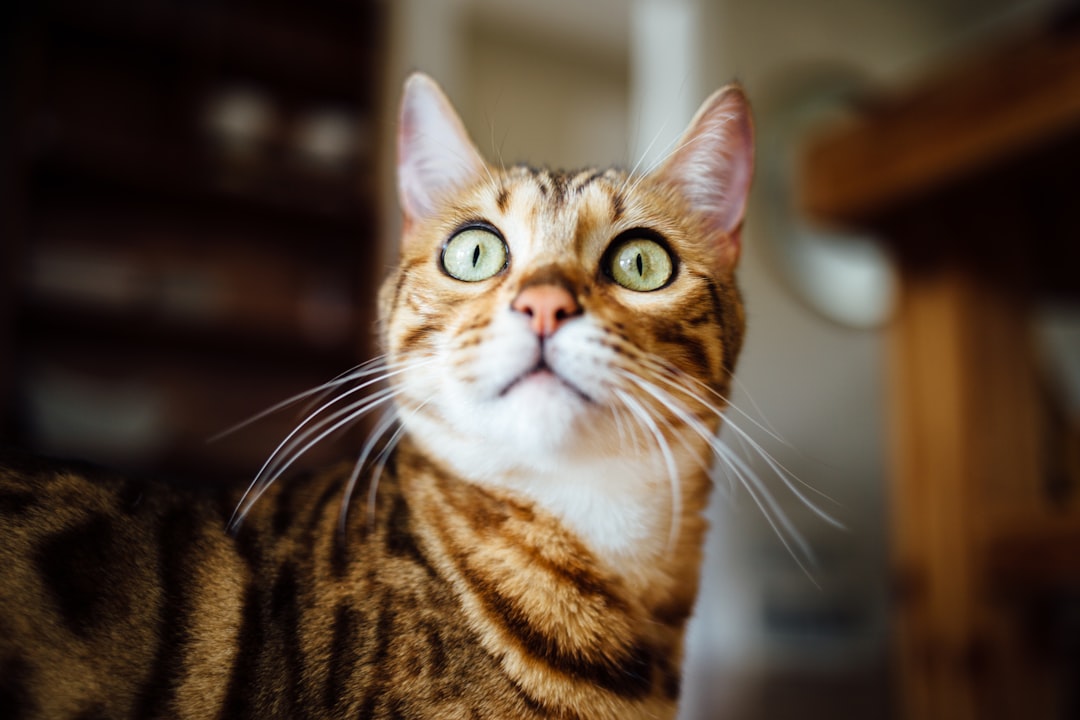
Pros and Cons of Owning a Serval Cat
Owning a serval cat pet can be a rewarding yet challenging experience. Here’s a balanced overview of the advantages and disadvantages.
Pros:
- Unique Companionship: Servals are affectionate and can form strong bonds with their owners.
- Playful Nature: Their playful antics can provide endless entertainment.
- Low-Allergen: Servals produce less dander than typical domestic cats, making them a potential option for allergy sufferers.
Cons:
- Space Requirements: A serval cat pet needs ample space to roam and exercise; a small home may not suffice.
- High Costs: They require specialized care, which can lead to high veterinary bills and maintenance expenses.
- Legal Restrictions: Owning a serval might be illegal or require special permits in certain areas.
Summary Table
| Pros | Cons |
|---|---|
| Unique companionship | Needs lots of space |
| Playful nature | High maintenance costs |
| Low-allergen potential | Legal restrictions |
In conclusion, considering both sides can help you determine if a serval cat pet fits your lifestyle and responsibilities.
Legal Considerations for Keeping a Serval Cat as a Pet
Owning a serval cat pet comes with significant legal responsibilities. Before bringing one into your home, consider the following crucial aspects:
Laws Variability: Regulations differ by state and country. Some regions strictly prohibit ownership of serval cats, while others require permits. Research local laws before committing.
Licensing Requirements: If allowed, municipalities may require special licenses. These often mandate specific housing conditions and proof of veterinary care.
Zoning Laws: Some residential areas have restrictions on exotic pets. Verify zoning regulations to ensure compliance and avoid legal issues.
Wildlife Regulations: Serval cats often fall under wildlife protection laws. Understanding these regulations helps you navigate the complexities of owning a serval cat pet.
| Legal Aspect | Considerations |
|---|---|
| Ownership Legality | Check local and state laws |
| Licensing | Permits may be required; ensure all paperworks are maintained |
| Zoning Restrictions | Verify if your area allows for exotic pet ownership |
| USDA Regulations | Familiarize yourself with federal wildlife laws |
Being well-informed about legal considerations is essential for becoming a responsible serval cat pet owner.
Dietary Needs of Serval Cats
When considering a serval cat pet, understanding their dietary needs is crucial for their health and well-being. Servals are obligate carnivores, meaning they primarily require a meat-based diet. Here are the essential dietary components:
Raw Meat: Fresh, raw meat should constitute the bulk of their diet. Preferred options include:
- Chicken
- Rabbit
- Quail
Supplementation: Include bones and organ meats to ensure proper nutrition. A well-rounded diet might consist of:
- Muscle meat (60-70%)
- Organs (15-20%)
- Bone (10-15%)
Hydration: Ensure access to fresh water at all times, as hydration is vital for their overall health.
Comparison Table: Serval vs. Domestic Cat Diet
| Aspect | Serval Cat | Domestic Cat |
|---|---|---|
| Diet Type | Obligate carnivore | Facultative carnivore |
| Preferred Food | Raw meat (e.g., birds, rodents) | Commercial or raw diets |
| Nutritional Needs | High protein and fat | Balanced diet of meat and grains |
In conclusion, meeting the dietary needs of a serval cat pet requires commitment and knowledge. Proper nutrition directly influences their energy levels and longevity, ensuring they thrive in a domestic environment.
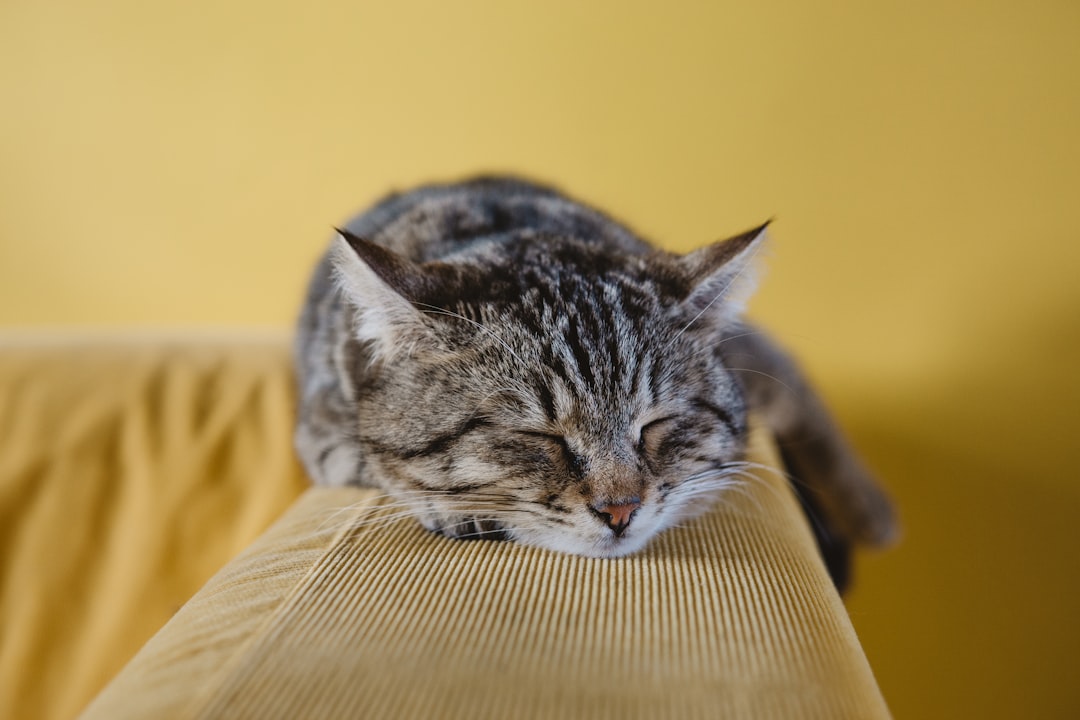
Enrichment and Exercise Requirements
Keeping a serval cat pet requires a deep understanding of its natural instincts and needs. These active felines thrive on mental and physical stimulation, so providing ample enrichment is essential.
Key Requirements for Enrichment and Exercise:
Space to Roam: Serval cats require large, secure areas to play and explore. A spacious outdoor enclosure, ideally at least 1,500 square feet, is recommended.
Climbing Structures: Incorporate vertical spaces, such as cat trees or shelves, to mimic their natural habitat and encourage climbing.
Interactive Toys: Use toys that engage both mind and body. Consider:
- Feather wands
- Puzzle feeders
- Balls and string toys
Water Play: Serval cats enjoy water; providing a shallow pool can enhance their playtime.
Regular Playtime: Devote time daily for interactive play to keep your serval stimulated and prevent boredom.
In essence, to ensure your serval cat pet is happy and healthy, prioritize their exercise routines and create an enriched environment. This will help them thrive in a domestic setting while satisfying their wild instincts.
Grooming and Care for Serval Cats
Caring for a serval cat pet requires dedication and understanding of their unique grooming needs. Unlike typical domestic cats, servals possess distinct characteristics that influence their care routine:
- Coat Maintenance: Servals have short, dense fur that helps regulate temperature. Regular brushing (at least once a week) prevents matting and removes loose hair.
- Bathing: Generally, servals do not need frequent baths. Bathe your serval only if they get into something particularly dirty. Use mild, cat-safe shampoos to avoid irritation.
- Nail Care: Trim your serval’s nails every few weeks to prevent overgrowth. Use cat nail clippers, and be cautious to avoid the quick.
- Dental Hygiene: Dental care is vital. Brush your serval cat pet‘s teeth regularly, or provide dental treats designed for cats to promote oral health.
- Ear Cleaning: Check their ears every month for dirt or wax buildup. Clean gently with a cotton ball dampened in a vet-approved solution.
By ensuring proper grooming and care, you’ll help your serval cat pet thrive in your home environment. Remember, a well-groomed serval is a happy serval!
Socialization and Behavioral Traits
Owning a serval cat pet comes with unique socialization needs and distinct behavioral traits. Understanding these aspects is crucial for ensuring a harmonious relationship with your new feline friend.
Key Socialization Tips for Serval Cats:
- Early Exposure: Introduce your serval cat pet to various environments, people, and other animals from a young age. This helps reduce stress and promotes a confident demeanor.
- Regular Interaction: Spend quality time daily to build trust. Engage in playtime and positive reinforcement training to reinforce good behaviors.
- Safe Spaces: Create areas where your serval can retreat when feeling overwhelmed. This promotes a sense of security.
Behavioral Traits of Serval Cats:
| Trait | Description |
|---|---|
| Active Hunters | Servals are natural hunters and require ample playtime to mimic hunting behaviors. |
| Vocal Communicators | They communicate through a range of sounds, including growls and chirps. |
| Curiosity | Servals are highly inquisitive, necessitating a stimulating environment to explore. |
Understanding these nuances helps ensure that your serval cat pet thrives, leading to a fulfilling companionship.
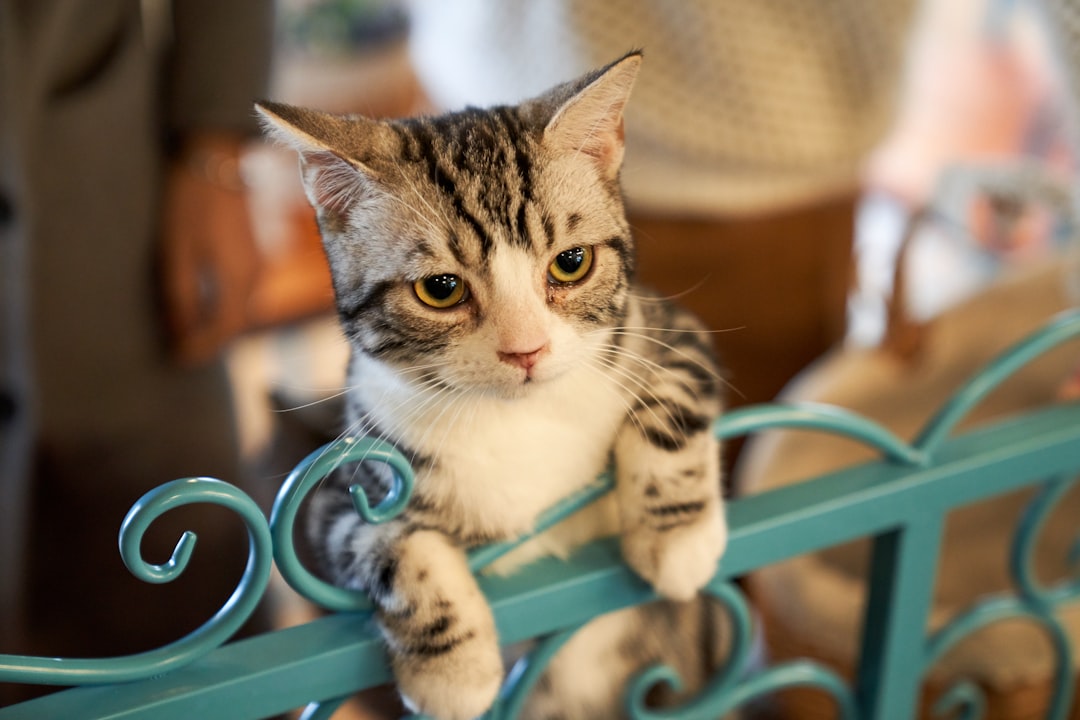
Finding a Reputable Breeder or Rescue
When considering a serval cat pet, selecting a reputable source is crucial. Here are key steps to guide you through this process:
Research: Start by researching local breeders or rescues specializing in servals. Look for reviews and testimonials from previous adopters.
Visit Facilities: Always visit the facility. A reputable breeder or rescue will maintain clean, healthy environments for their animals.
Ask Questions: Inquire about the following:
- The animal’s health history
- Socialization practices
- Diet and care provided to the cats
- Any warranties or guarantees on the pet’s health
Documentation: Ensure they provide necessary documentation, including vaccinations and lineage. This fosters trust in the serval cat pet’s health and background.
Adoption Contracts: If adopting, read the contract carefully. This often outlines care expectations and potential return policies.
Networking: Engage with communities online or in-person focused on serval cat pets, which can lead to referrals for reputable breeders or rescues.
Selecting the right source not only ensures a healthy serval cat pet but also sets the foundation for a successful relationship.
Frequently Asked Questions
What is a serval cat and how does it differ from a domestic cat?
A serval cat (Leptailurus serval) is a wild feline native to Africa, known for its long legs, large ears, and spotted coat. Unlike domestic cats, servals have unique physical characteristics such as a longer neck and larger body size, capable of weighing up to 40 pounds. They are also known for their exceptional jumping abilities and hunting skills, particularly in catching birds and small mammals. Keeping a serval as a pet requires a well-thought-out commitment due to their wild instincts and needs that differ significantly from those of a typical household cat.
Is it legal to keep a serval cat as a pet?
The legality of keeping a serval cat as a pet varies by location. In some regions and states, it is permitted with specific permits, while in others, it is outright banned. It is essential to research local wildlife regulations and laws before considering a serval as a pet. Additionally, potential owners should contact local animal control and relevant wildlife organizations to ensure they comply with all requirements and understand the responsibilities involved in caring for a wild species.
What are the specific care requirements for a serval cat?
Serval cats require a specialized care routine that includes a spacious and safe outdoor enclosure, as they are active and agile creatures that thrive in open spaces. Their diet must consist of raw meat, whole prey items, and high-quality cat food, tailored to meet their high protein needs. Regular veterinary care, including vaccinations and health checks, is crucial. Understanding their social and behavioral needs is equally important, as servals may not bond with humans in the same way domestic cats do and may require more interaction or alternatives for mental stimulation.
Can serval cats be trained or socialize effectively with humans?
While serval cats can learn basic commands and can be trained using positive reinforcement, they generally retain many of their wild instincts, making socialization challenging. They may not exhibit the same affectionate behavior or attachment as a domestic cat. Early socialization is critical, involving human interaction from a young age to help them acclimate. However, even with proper training, owners should manage expectations and recognize that their behavior will always reflect their wild nature.

